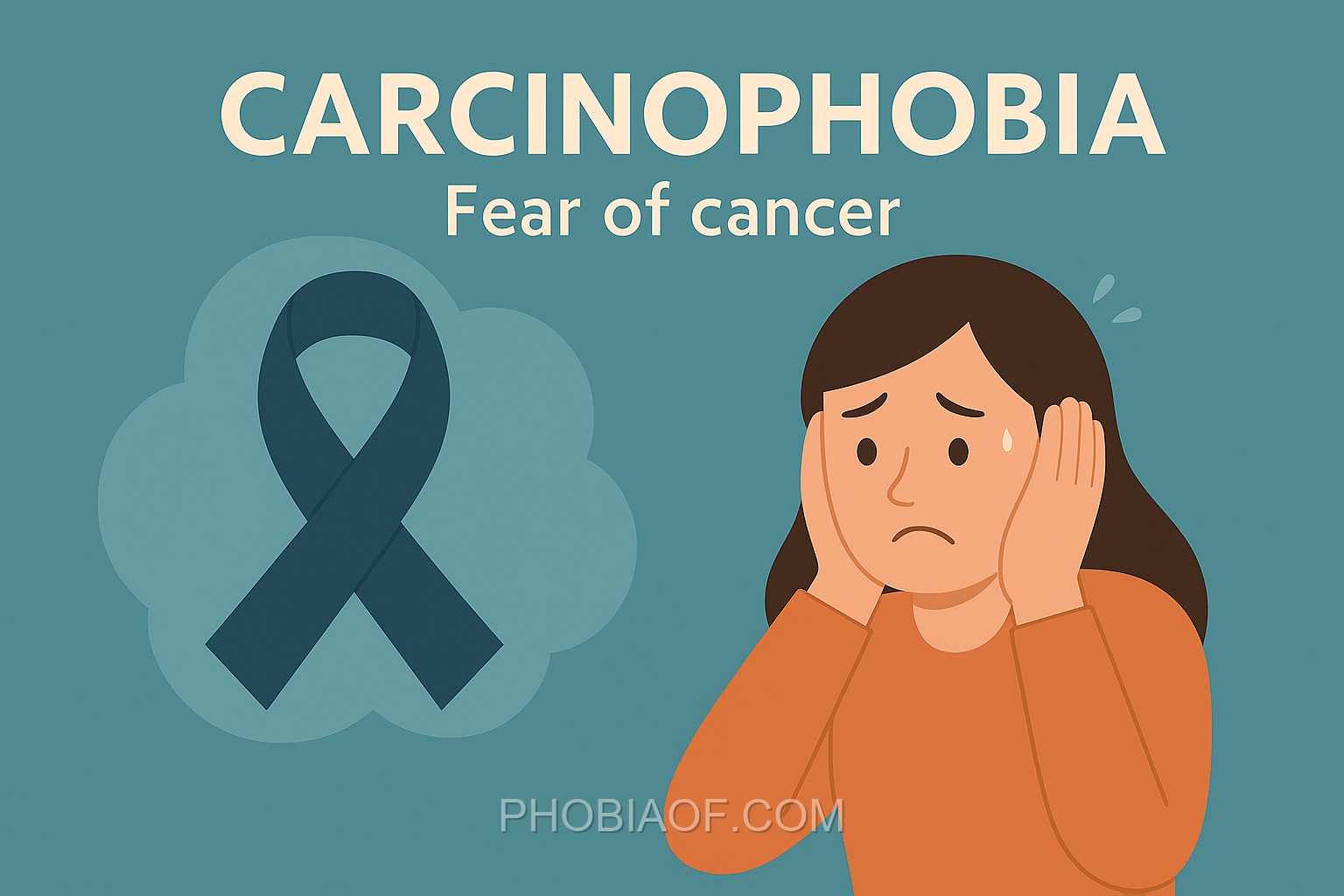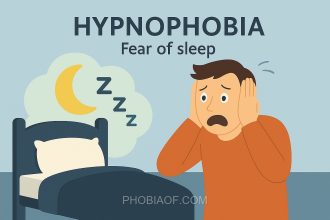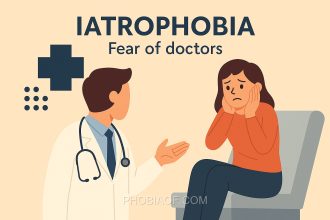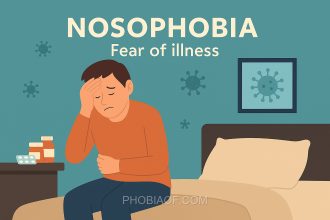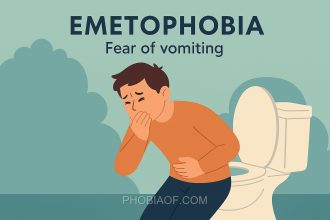Have you ever found yourself worrying excessively about the possibility of developing cancer? If so, you’re not alone. This intense fear has a name: Carcinophobia.
Carcinophobia is the fear of cancer, a condition that can manifest as an overwhelming anxiety about developing the disease. The term combines two Greek words: karkinos, meaning “crab” or “cancer,” and phobos, meaning “fear.” This phobia goes beyond normal health concerns, often leading to significant distress and affecting daily life.
People suffering from Carcinophobia might experience:
- Frequent medical check-ups or tests without a medical basis.
- Avoidance of certain activities or foods due to perceived cancer risks.
- Persistent, intrusive thoughts about cancer, causing significant anxiety.
This fear can impact an individual’s emotional well-being, relationships, and even their physical health due to stress. Understanding Carcinophobia is the first step towards managing it, allowing those affected to lead more balanced and peaceful lives.
Causes of Carcinophobia
Carcinophobia, or the fear of cancer, is a phobia that can significantly impact a person’s life. Understanding its causes can help in addressing the fear more effectively. Below are some potential causes of carcinophobia:
- Genetic Predisposition: Some individuals may be more genetically inclined to develop phobias, including carcinophobia. Family history can play a role in making someone more susceptible to anxiety-related conditions.
- Traumatic Experiences: Experiencing or witnessing a loved one’s battle with cancer can be deeply traumatic. Such experiences can imprint a lasting fear of cancer in an individual’s mind, leading to carcinophobia.
- Learned Behavior: Observing others who have a fear of cancer can influence someone to develop the same fear. This learned behavior often happens subconsciously, especially if the person looked up to is a significant figure in one’s life.
- Psychological Factors: People with a general tendency towards anxiety may be more prone to developing specific phobias like carcinophobia. Their heightened sensitivity to health-related concerns can amplify fears of serious illnesses.
- Environmental Factors: Exposure to media stories about cancer outbreaks or high-profile cancer diagnoses can contribute to the development of carcinophobia. Sensationalized news can exaggerate perceptions of personal risk.
Interestingly, some research suggests that cultural factors might also influence the prevalence of carcinophobia. In societies where cancer is stigmatized or heavily emphasized, fears surrounding the disease may be more pronounced.
Overall, carcinophobia is a complex phobia with multiple possible causes. Understanding these factors can be the first step towards addressing and managing the fear effectively.
Symptoms of Carcinophobia
Carcinophobia, or the fear of cancer, is characterized by an intense and persistent fear or anxiety about developing cancer. This phobia can manifest in various physical and emotional symptoms, significantly impacting the lives of those affected. Recognizing these symptoms is an important step in seeking help.
Common Physical Symptoms:
- Panic attacks, which may include shortness of breath, chest pain, or dizziness.
- Excessive sweating, especially when thinking about cancer or potential cancer-related situations.
- Rapid heartbeat or palpitations when faced with cancer-related triggers.
- Shaking or trembling, often in response to anxiety about cancer.
- Nausea or stomach discomfort when confronted with thoughts or discussions about cancer.
Emotional and Behavioral Symptoms:
- Overwhelming dread or a persistent sense of impending doom regarding one’s health.
- Avoidance of triggers such as medical appointments, health information, or even discussions about cancer.
- Constantly seeking reassurance from doctors or loved ones about one’s health status.
- Difficulty concentrating or focusing due to anxiety about developing cancer.
- Irregular sleep patterns or insomnia driven by fear and anxiety.
When severe, these symptoms can interfere with daily life, making it challenging to maintain relationships, perform at work, or engage in everyday activities.
Treatment for Fear of Cancer (Carcinophobia)
If you are struggling with a fear of cancer, known as carcinophobia, know that you are not alone. This phobia can be treated and managed over time with the right approach. There are several effective treatment options and coping strategies that can help you overcome this fear, allowing you to lead a more peaceful and fulfilling life.
Here are some proven therapies and techniques that can assist in managing carcinophobia:
- Exposure Therapy: This therapy involves gradually facing your fear in a controlled and safe environment. Over time, repeated exposure can reduce the anxiety associated with cancer, helping you to manage your fear more effectively.
- Cognitive-Behavioral Therapy (CBT): CBT is designed to change the negative thought patterns that contribute to your fear. By identifying and challenging these thoughts, CBT can help you develop healthier and more balanced perspectives.
- Counseling: Speaking with a mental health professional can provide support and guidance as you navigate your fear. Counseling sessions can offer a space to express your feelings and develop personalized strategies to cope.
In addition to therapy, there are several self-help coping techniques that can complement your treatment:
- Relaxation Exercises: Techniques such as deep breathing, progressive muscle relaxation, or guided imagery can help reduce anxiety and promote a sense of calm.
- Meditation: Regular meditation practice can enhance mindfulness, allowing you to stay present and reduce the tendency to dwell on fears about the future.
- Support Groups: Joining a support group can connect you with others facing similar fears, providing a sense of community and shared understanding.
In some cases, medication such as anti-anxiety medications might be prescribed for severe symptoms. However, the focus should be on therapy and coping skills to achieve long-term management of the phobia.
If your fear of cancer is interfering with your daily life, it is important to seek professional help. A mental health professional can work with you to create a tailored treatment plan to address your specific needs.
Remember, overcoming a phobia takes time, and progress may be gradual. Be patient with yourself and stay committed to the process. With the right support and strategies, you can manage your fear and regain control over your life.
Conclusion
Understanding the causes and symptoms of carcinophobia is a crucial step in addressing this often debilitating fear. By recognizing the underlying factors and how they manifest, individuals can begin to take proactive steps toward managing their anxiety related to cancer. This awareness not only empowers those affected by carcinophobia but also fosters a sense of control over their mental well-being.
It’s important to remember that many people have successfully overcome or managed their phobias with time, patience, and the right support. Seeking professional help, such as therapy or talking to a doctor, can be invaluable in navigating this journey. Engaging with mental health resources can provide effective strategies and tools to cope with the fear of cancer.
Take heart in knowing that you are not alone, and support is available. By reaching out for help, you are taking a courageous step towards a more peaceful and empowered life.
If you find yourself struggling with carcinophobia, consider consulting a healthcare professional. They can offer guidance and support tailored to your needs, helping you to reclaim your peace of mind and move forward with confidence.
